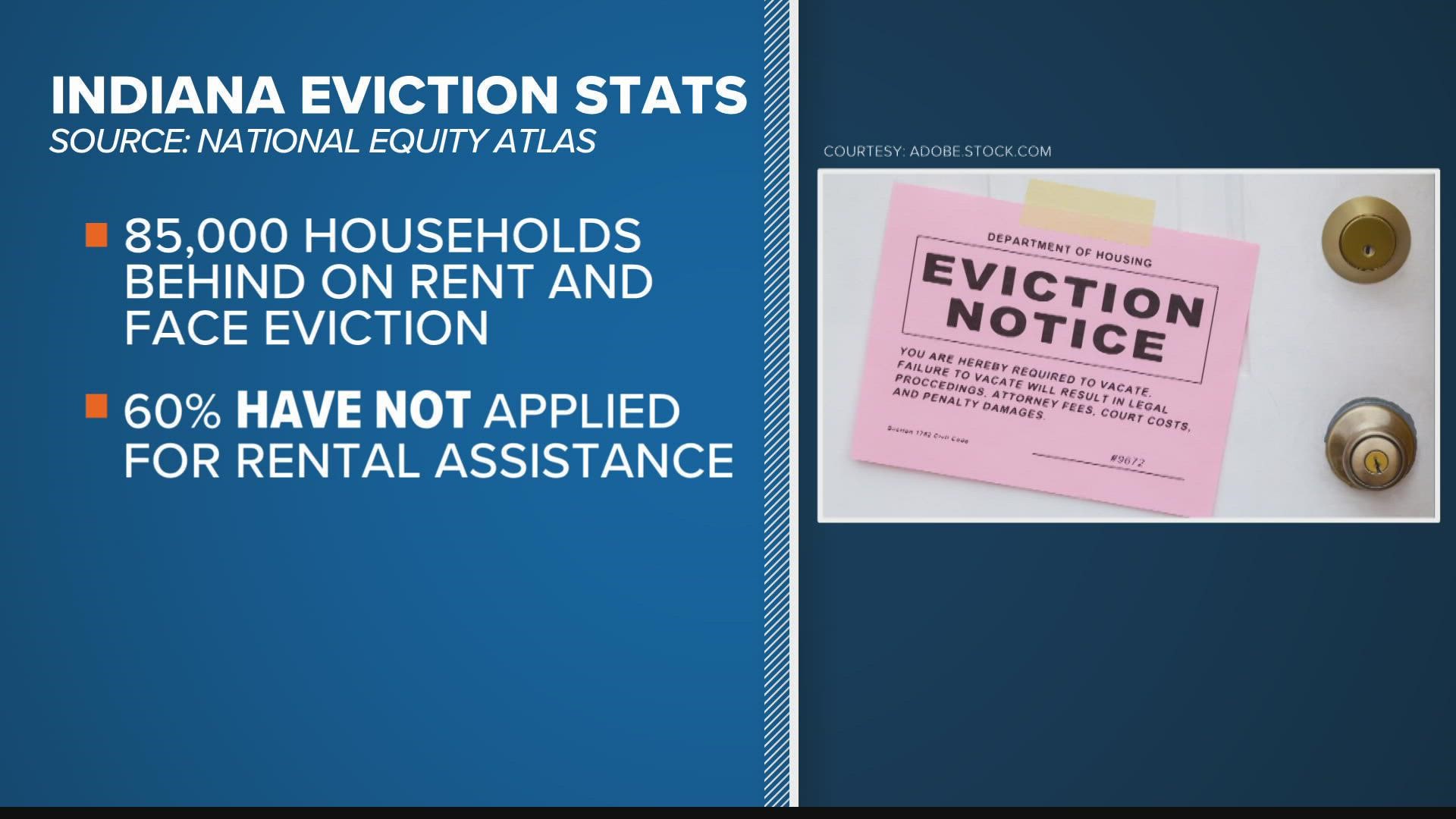INDIANAPOLIS — The Indiana Supreme Court announced a new pre-eviction diversion program for trial courts in an effort to help tenants and landlords access federal rental assistance funds quicker.
The program was recommended by the newly formed Indiana Eviction Task Force in its interim report and will go into effect starting Nov. 1.
Advocates say they are still seeing eviction court dockets fill up with filings since the CDC’s eviction moratorium ended last August.
It’s estimated 65,000 evictions were filed in Indiana since the start of the pandemic - 1,600 in the last four weeks - according to Eviction Lab.
“For instance, some of the 9 a.m. dockets don’t conclude until about 3 p.m. just because of how many cases there are,” said Brandon Beeler with Indiana Legal Services and member of the state’s eviction task force.
The new statewide program will require courts at the first hearing to let tenants and landlords know of the availability and benefits of rental assistance, and programs like free Landlord and Tenant Settlement Conference Program.
If both parties agree on entering the program, the eviction proceedings will be paused for 90 days. Once in the program, the parties also have the option to bring the case back in front of a judge for different circumstances.
A tenant can also have their case sealed and made confidential if they successfully participate in the program.
“Tenants that were impacted by the pandemic beyond their control shouldn’t be something that haunts them forever,” said Beeler.
Beeler said the program is not mandatory for landlords, but it can help landlords get a quicker result of payment.
“We all agree the faster implementation of rental assistance and distribution is important,” he said.
During the pandemic, Indiana received about $371 million in rental assistance and has so far issued about $207 million of that to about 22,000 families, according to data from Indiana Housing & Community Development Authority.
Even though the money is moving, some advocates worry it will not move fast enough for every Hoosier.
“I do get concerned that in a month, if cases have been continued out that long, what’s going to happen if that assistance isn’t quite there yet,” Beeler said.
The court’s program is modeled after similar programs in Texas and Michigan. The task force plans to review the program in the next few months and issue a final report in January.
Landlords and tenants looking for assistance can visit a state courts website. Rental assistance programs available can cover some or all back rent for eligible tenants. There are also free settlement conferences to discuss specific situations with help from a neutral facilitator and potential resources for legal assistance.
If you live in Marion County, you can sign up for extra rental assistance.
Previously, you could only receive three months of aid at a time through Indy Rent, but now they're offering 12 months.
Anyone currently receiving rental assistance can apply for an extension.
Indy Rent will send you a notification with details on the next steps you need to take.
If you're not already signed up for rental help, you can do so online.
What other people are reading:
- Indianapolis mother battling COVID finally meets her baby more than 50 days after boy was born
- Hoosiers asked to donate to Afghan refugees as cold weather approaches
- Simone Biles taking control of mental health as gymnastics tour comes to Indianapolis
- Sheriff: Cinematographer died after Alec Baldwin discharged gun on movie set
- Sentence reductions could have woman convicted in fatal bus stop crash home for Christmas
- All 3 COVID vaccine boosters, mixing-and-matching OK'd by CDC
- FBI searching for 1981 murder fugitive who might be in Indiana
- Sen. Braun invites unvaccinated Chicago officers to apply for Indiana openings

